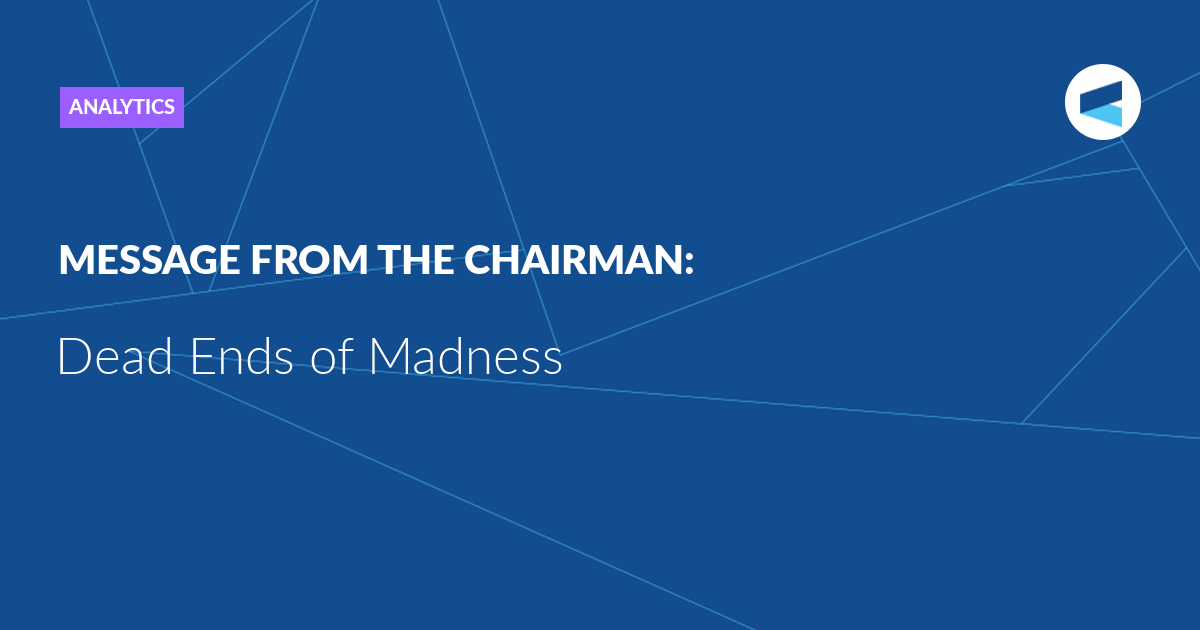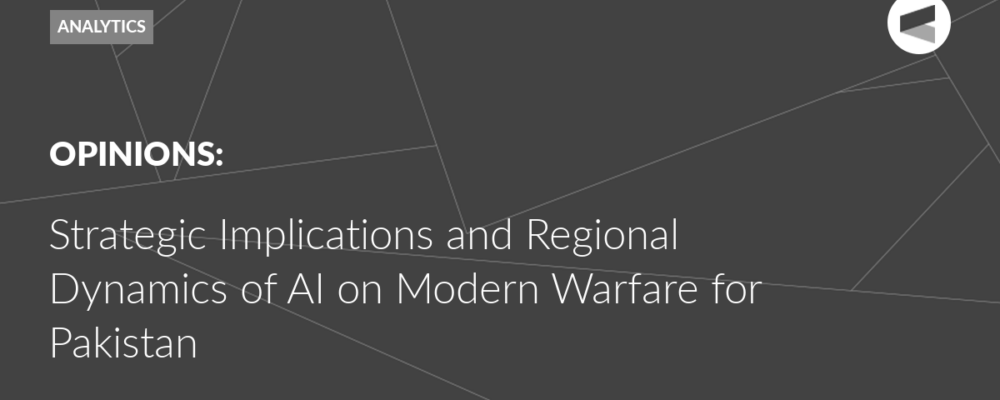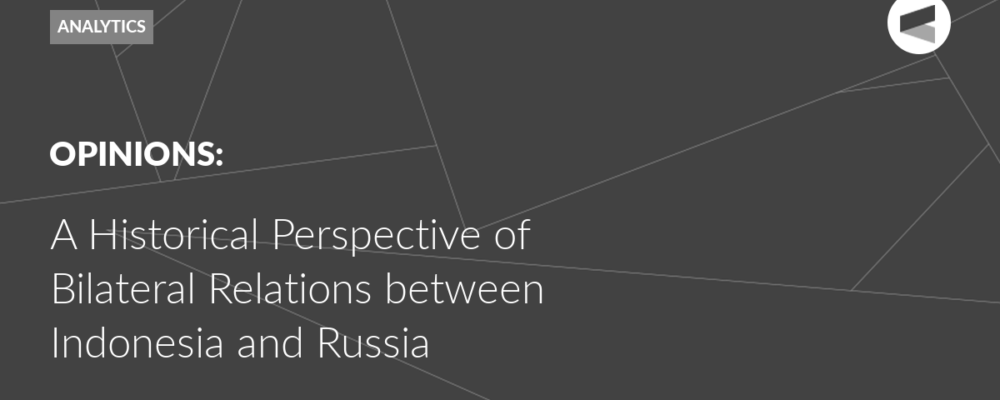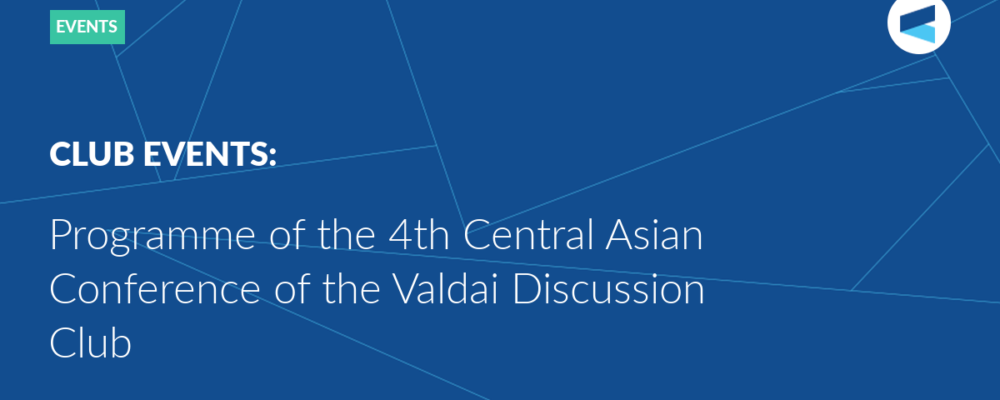Alas, the world is on fire. And this fire is only growing. For some reason, it seems that we don’t have enough firefighters. But there are plenty of arsonists.
When we look at what is happening in the modern world and reflect on the behaviour of its various elites, it seems that a significant proportion of them are in a state of permanent madness or hysteria, leading to the inability to rationally approach the events taking place. At one time, Francisco Goya created an etching called “The Sleep of Reason Produces Monsters”. As the artist explained: “When the mind sleeps, fantasy in sleepy dreams gives birth to monsters, but in combination with reason, fantasy becomes the mother of art and all its wonderful creations.” That is, if we correctly understand the master, the mind must still awaken and then the monstrous nightmares generated by crazy dreams will dissipate. And they won’t just scatter, but will turn into something beautiful and maybe even useful.
However, there seems to be little such hope for Western elites. The rhetoric that is heard from them, the rage that sounds in their words, indicate extreme despair and an unwillingness to soberly understand what is happening, and even more so, what needs to be done so that humanity can avoid a real catastrophe, the threat of which, alas, increases. A good example is the reaction to the words of the Pope about wisdom and courage in decisions (“In my opinion, the strongest one is the one who looks at the situation, thinks about the people and has the courage of the white flag, and negotiates” Pope Francis said about behavioural models for Ukraine). The Pope was condemned by many in Ukraine, and most Western leaders either responded critically or disregarded the Pontiff’s words. But he did not say anything fundamentally new, much less anti-Christian; he just emphasized that people’s lives are worth at least something, and the threat of turning this conflict into a universal catastrophe should be taken seriously.
In general, it makes sense to take a closer look at the nature of modern conflicts, whose number and severity are increasing.
Over the past twenty years, many articles and books have been written about the changing world order. Their common theme is the collapse of the hegemony of the Western world, the collapse of the global hierarchy, the transfer of initiative in the development of the world, in the processes of globalisation, to the countries of the Greater South, to non-Western countries, primarily Eurasian ones, to India, China, Russia, but also to Latin America and Africa. Fareed Zakaria, Jean Baudrillard, Edward Luttwak, Peter Navarro, and many, many others have written about this. They wrote, of course, in different ways, and with their own accents, but in general, everything inevitably came down to thinking about the consequences — negative and positive — of this loss of the West’s position.
We can talk for a long time about the reasons for the West’s loss of its leading role. Here, undoubtedly, globalisation, the development of information and communication technologies, and the confrontation between the USSR and the USA played a role, under the shadow of which many countries of the so-called “Third world” were able to gain more independence, together with a natural change of generations, the spread of humanistic values and, probably, a huge number of factors more. But it seems to me that something like a clouding of the minds of the Western elites played a very significant role. Incidentally, Francis Fukuyama’s essay “The End of History” can be considered quite symptomatic. What is important here is not that Fukuyama was incredibly mistaken — the arrow that he fired at the target hit him approximately in the back, but at the heart of his mistake was the exceptional complacency, and even a kind of impudence, expressed by many prominent Western elites. As a result, the manner of behaviour became extremely careless, serious analysis was replaced by journalistic chatter, all kinds of private foundations, non-profit organisations and purely administrative structures acquired enormous, incongruous power and influence. As a result, the politics of Western countries took on rather chaotic forms, and the emergence of social networking sites with their opaque algorithms and the general growth of the influence of all kinds of media gave this chaos a rather malignant character.
However, I think that somewhere at the very beginning of the twenty first century, it suddenly became clear that Western dominance was dissolving, that the world as a whole was much larger, much more vigorous than the West, that it was going its own way. Perhaps somewhere a cognitive dissonance occurred, from which Western elites, as a whole, failed to escape. Of course, many thinkers, scientists and even politicians understood the situation, but they failed to overcome the massive pressure of the intellectual elites. Tens or hundreds of thousands of bloggers, journalists, and social network administrators simply pushed common sense to the periphery of the thought process. In general, the Western establishment got scared and set a course for the intense promotion of Western models, and (which is typical) by almost any means, even directly contradicting the values they themselves declare. Very soon, due to the objective circumstances of the development of the world, the West actually went on the defensive and began to build a kind of “Hadrian’s Wall”. In one article I even wrote about the “NATO Archipelago”, about a kind of fencing that the West has engaged in. The goal was simple: to protect our own, preferably with some expansion, and to weaken the rest, everyone outside the NATO archipelago, beyond the new “Hadrian’s Wall”.
However, it gradually became clear that this was not working out very well, that the strategy wasn’t simply wrong, it was downright destructive. Panic began to grow, and there was a feeling of impending disaster. The result was what can be called political madness. Or just simple madness.
At one time G.K. Chesterton in his book “Orthodoxy” wrote about the difference between a madman and a normal person. It is a mistake to assume, Chesterton believed, that a madman has something that a normal person does not have. Everything is just the opposite, a psycho does not have what a normal person has, namely imagination. Mad people are logical, they follow their own ideas about how everything should be arranged and do not know how to be surprised by the world, like ordinary normal people. The latter, due to their ability to be open to the world and being able to respond flexibly to new challenges, can and are ready to create new worlds as a result.
Also, the Western establishment turned out to be maniacally devoted to the idea of domination, superiority over the rest of the world. There was not enough courage or the ability to see a new world, find a new role in it and let others play theirs. As the non-Western world grew stronger, I repeat, so did the madness.
French researcher Dominique Moïsi, in his book “The Geopolitics of Emotion: How Cultures of Fear, Humiliation, and Hope are Reshaping the World”, writes that the West is controlled by a culture of fear, the West feels that it is losing its central position in the world, and this leads to panic, and the latter to the clouding of reason. At the same time, Asian countries live, rather, in a culture of hope; they are open to the world and want to develop ties. They are confident in themselves, in their ability to navigate in a modern, complex space, to globalise. Moïsi cited the countries of the Arab-Muslim world as an example of a culture of humiliation, which, in his opinion, blame Western countries for their condition. It seems to me that in the years since the book was published, the Arab-Muslim world has clearly shifted towards a culture of hope. However, alas, the millstones of history grind slowly.
Jean Baudrillard in his book “The Spirit of Terrorism” generally writes that the current state of the West, including its intellectual elements, is a consequence of the split in the West itself. A simplified, hegemonic approach to the outside world results in a kind of suppression within the Western community. The mechanical, linear application of a simplified scale of values leads to the growth of what can be called a spirit of protest. Internal intellectual contradictions only intensify the hysterical panic attack and confuse the headquarters of Western countries. As a result, the behaviour of political leaders becomes less predictable, which only increases the danger of the situation.
Some time ago, a discussion flared up (and has not yet stopped) about what could be called the “14/38 dilemma” (counting from the Munich agreement – one can also talk about 14/39). We are, of course, talking about the beginning of the First and Second World Wars. Many argue that the First World War was the result of a series of misunderstandings. In fact, one family ruled Europe, the English king and the Russian sovereign looked unusually similar, and the Kaiser of Germany was their relative and friend. Alas, they failed and a destructive war began. Unlike in WWI, there is an opinion that WWII was a conscious conspiracy of Hitler against the world. There is no doubt about the villainous essence of German Nazism; the point is the appropriateness of the comparisons.
It seems to me futile to look for similarities and differences between the current situation and the state of affairs on the eve of the world wars. First, because all historical comparisons are lame, and second, because the current situation is unprecedented.
If we look for some analogies, we would be more likely to see them in something like the collapse of the Roman Empire more than one and a half thousand years ago or the Chinese Han Empire at around the same time. It may make even more sense to compare it with the Thirty Years’ War of the 17th century. The latter, by the way, ended with the Peace of Westphalia, which for a long time determined the model in which Europe lived.
But, I repeat, we do not need to look for historical analogies, it is better to think about the future, about how the whole world can be saved and achieve sustainable, stable development.
So, what we need now, first of all, is a reasonable imagination, a return to some kind of normality, rationality, sobriety and clarity of thinking. We need to restore the ability to think productively. Without this, we are truly headed for disaster.
We also need political will and courage. It is necessary that the leading countries of the world should be able to develop a model of the future which is acceptable to everyone. This will allow them to come to an agreement and put aside the hysterics.
P.S. Despite all the naivety of the hope that rationality will suddenly awaken, alas, there is no other way out other than backing away from growing hostility and looking forward to the beginning of a polylogue about the future.
The Valdai Discussion Club was established in 2004. It is named after Lake Valdai, which is located close to Veliky Novgorod, where the Club’s first meeting took place.
Please visit the firm link to site






